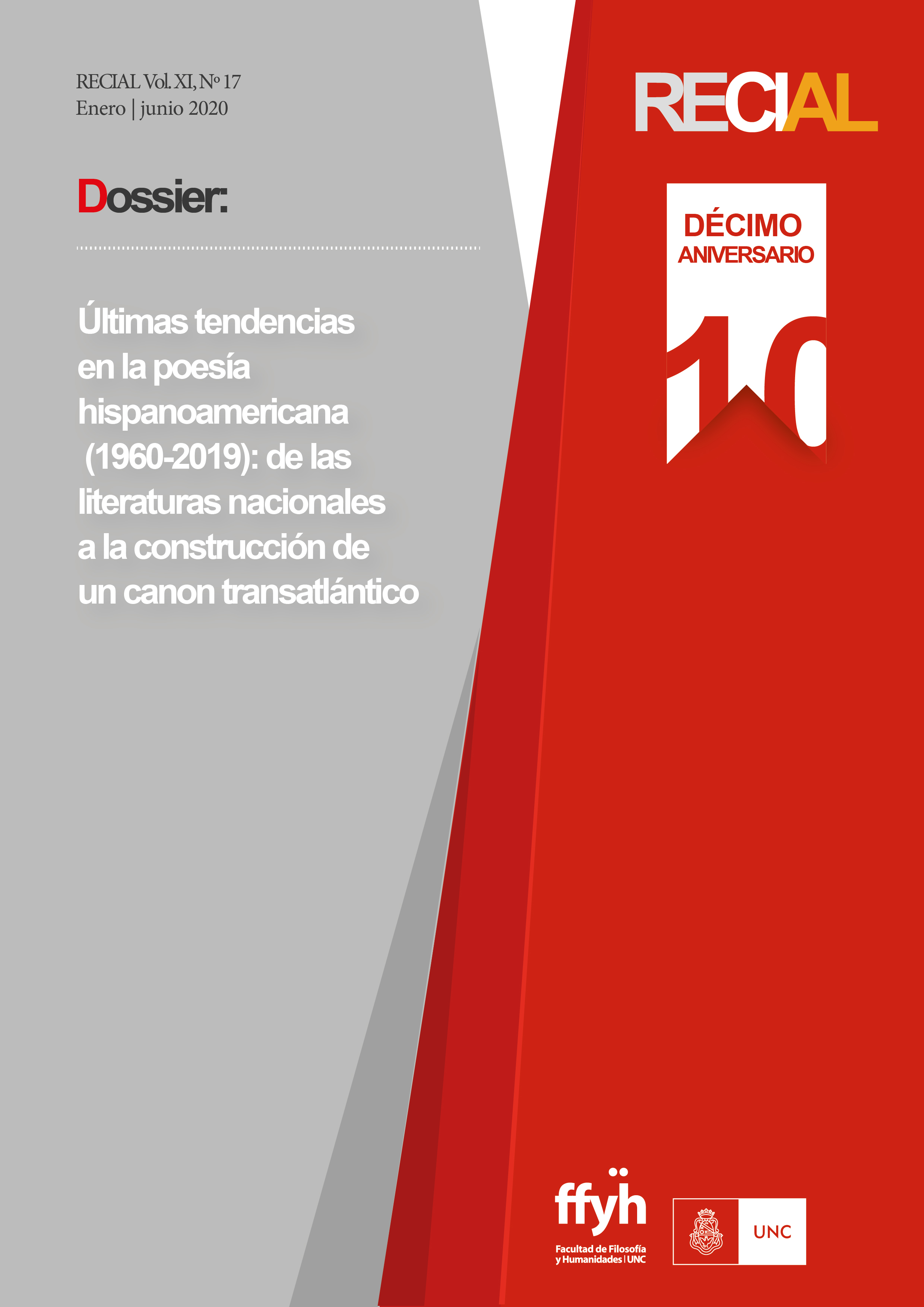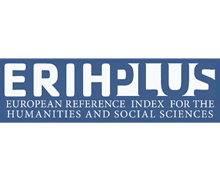Political-Ethics in Salmos by Ernesto Cardenal
DOI:
https://doi.org/10.53971/2718.658x.v11.n17.29414Keywords:
ethics-politics, Ernesto Cardenal, Latin America, poetry, SalmosAbstract
From the middle of the last century onwards, poets began to publish in different Latin American countries that aimed, on the one hand, to promote democracy as an ideal system for the societies of the time and promote the overthrow of the dictatorships suffered by countries such as the Dominican Republic, El Salvador, Nicaragua, etc., and, on the other, inaugurate a new way of writing poetry, a poetry more committed to social causes and not only to language itself. Among those poets is Ernesto Cardenal (1925), an emblematic figure of the Sandinista revolution that ended in 1979 with more than forty years of
Somocista dictatorship. Ernesto Cardenal published several poetry books that today are paradigms of what is known as social or revolutionary poetry in Latin America, but which, unfortunately, are not yet studied with the prolixity that their importance requires. This paper will reflect precisely on the ethical-political proposal that Ernesto Cardenal printed in his book Psalms (based on a deep knowledge of political ethics and even religious morals) not only as a new way of conceiving the political fact in Latin America but, also, to found a new way (the "exteriorist", a term he coined) to make poetry.
Downloads
References
Alter, R. (1987). Psalms. En R. Alter y F. Kermode (Eds.), The Literary Guide to the Bible. Estados Unidos: Harvard University Press.
Barrow, G. R. (1987). Tradition and originality in the Denunciatory Salmos of Ernesto Cardenal. En G. Paolini (Ed.), La Chispa ’87. Selected proceedings (pp. 15-22). Estados Unidos: Tulane University. Berryman, P. (2015). Teología de la liberación. Los hechos esenciales en torno al movimiento revolucionario en América Latina y otros lugares. Epublibre. Biblia de Jerusalén. (1975). España: Grafo.
Borgeson Jr., P. W. (1984). Hacia el hombre nuevo: poesía y pensamiento de Ernesto Cardenal. Inglaterra: Tamesis Book Limited.
Cardenal, E. (1971). The Psalms of Struggle and Liberation by Ernesto Cardenal [Trad.: E. G. McAvany]. Estados Unidos: Herder and Herder.
Cardenal, E. (1974). Salmos. Argentina: Cuadernos Latinoamericanos.
Cardenal, E. (1979). El evangelio de Solentiname. Costa Rica: Departamento Ecuménico de Investigaciones.
Cardenal, E. (2003a). Las ínsulas extrañas. Memorias II. México: Fondo de Cultura Económica.
Cardenal, E. (2003b). Vida perdida. Memorias I. México: Fondo de Cultura Económica.
Cardenal, E. (2005). La revolución perdida. Memorias III. México: Fondo de Cultura Económica.
Cardenal, E. y Merton, T. (2003). Correspondencia (1959-1968). España: Trotta. Dapaz Strout, L. (1975). Nuevos cantos de vida y esperanza: los Salmos de Cardenal y la Nueva Ética. En J. Promis Ojeda (Ed.), Ernesto Cardenal: poeta de la liberación latinoamericana (pp. 107-131). Argentina: Estudios Latinoamericanos.
Daydí-Tolson, S. (1984). Ernesto Cardenal: resonancia e ideología en el discurso lírico hispanoamericano. Revista Canadiense de Estudios Hispánicos, 9(1), 17-30. Gibbons, R. (1987). Political Poetry and the Example of Ernesto Cardenal. Critical Inquiry, 13(3), 648-671.
González Baladó, J. L. (1978). Ernesto Cardenal, poetas revolucionario y monje. España: Sígueme. Østergaard, O. (1984). La poesía social-revolucionaria en el Salvador y Nicaragua: Roque Dalton, Ernesto Cardenal. Cahiers du monde Hispanique et Luso-Brazilien, (42), 41-59. Promis Ojeda, J. (1975). Espíritu y materia: los Salmos de Ernesto Cardenal. En Autor (Ed.), Ernesto Cardenal: poeta de la liberación latinoamericana (pp. 15-38). Argentina: Estudios Latinoamericanos. Ramírez, S. y Juárez Polanco, U. (s. f.). Entrevista a Ernesto Cardenal: «Los malos poetas es por falta de humildad». Recuperado de http://www.cervantesvirtual.com/obra-visor/entrevista-a-ernesto-cardenal-los-malos-poetas-es-por-falta-de-humanidad/html/f58e08d6-cc44-4add-a2f1-ca92d29336f1_2.html
Rivera Vaca, A. (2018). Discurso poético y discurso del poder en Salmos de Ernesto Cardenal. Revista de Filología y Lingüística de la Universidad de Costa Rica, 44(1), 79-95.
Selser, G. (1984). Sandino, general de hombres libres. Argentina: Abril. Sigmund, P. E. (1990). Liberation Theology at the Crossroads: Democracy or Revolution. Inglaterra: Oxford University Press. Urdanimia Bertarelli, E. (1984). La poesía de Ernesto Cardenal: cristianismo y redención. Perú: Latinoamérica. Valdés, J. H. (1983). The Evolution of Cardenal's Prophetic Poetry. Latin American Literary Review, (12), 24-34. Vilas, C. M. (1984). Perfiles de la Revolución Sandinista. Cuba: Casa de las Américas.
Downloads
Published
Issue
Section
License

This work is licensed under a Creative Commons Attribution-NonCommercial-ShareAlike 4.0 International License.
Aquellos/as autores/as que tengan publicaciones en esta revista, aceptan los términos siguientes:
- Los/as autores/as conservarán sus derechos de autor y garantizarán a la revista el derecho de primera publicación de su obra, el cuál estará simultáneamente sujeto a la Licencia de reconocimiento de Creative Commons que permite a terceros compartir la obra siempre que se indique su autor y su primera publicación esta revista.
- Los/as autores/as podrán adoptar otros acuerdos de licencia no exclusiva de distribución de la versión de la obra publicada (p. ej.: depositarla en un archivo telemático institucional o publicarla en un volumen monográfico) siempre que se indique la publicación inicial en esta revista.
- Se permite y recomienda a los/as autores/as difundir su obra a través de Internet (p. ej.: en archivos telemáticos institucionales o en su página web), luego de su publicación en la revista. (Véase El efecto del acceso abierto).























